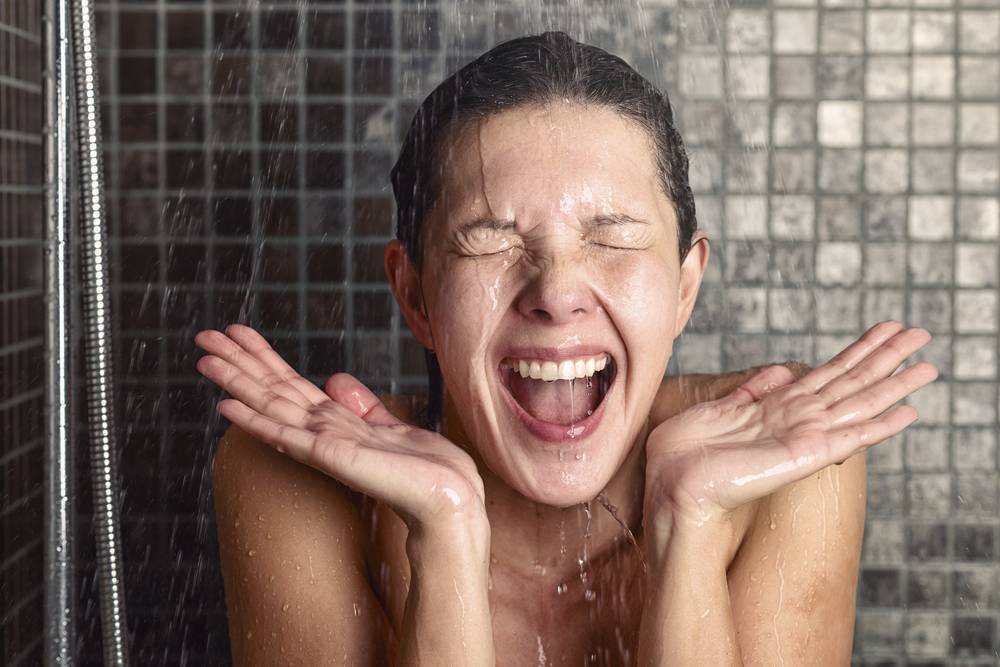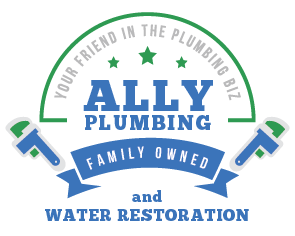
No Hot Water in Shower?
NO HOT WATER IN SHOWER? HERE’S WHY
Read Time: 5 minutes
If you own a home, you know the amount of time and money spent on maintaining all of its systems and appliances. From electrical and HVAC to plumbing and sewage, even the highest quality parts and equipment will eventually break down over time, wreaking havoc on your daily life. After all, there’s truly nothing worse than coming home after a long day of work only to discover that your shower is out of hot water. If you find yourself in this position (the hot water not working in your shower), look to this blog from the experts at Ally Plumbing & Restoration to explain why it might be happening and the steps you can take to fix it.
Check Your Home’s Water Supply
It is important to first see if the hot water problem is isolated to just your shower. If other faucets in your bathroom also have no hot water, it is typically an issue with your water heater affecting your whole home. Simply let thirty minutes to an hour pass, allowing the heater to regenerate and produce more hot water. If this doesn’t work, check the water heaters temperature control unit to ensure it is set to the right temperature or to see if it has blown a fuse.
If the water is only cold in your shower and hot throughout the rest of your home, the issue can be one of two things:
- The shower mixing valve is bad
- The anti-scald temperature is set too high
Shower Mixing Valve is Bad
The shower mixing valve is responsible for combining hot and cold water in order to achieve create the perfect temperature. Like many other appliances and pieces of equipment, it is prone to wearing out or breaking over time. If yours is not working properly, you may not be getting a sufficient amount of hot water in your shower (or even, in some cases- extremely hot water that is unbearable). If you think that the culprit of your lack of hot water is your shower mixing valve going bad, we recommend reaching out to a professional plumber. Sometimes, this can be solved by simply cleaning the valve or replacing it altogether, however, that involves the complex task of dissembling your shower fixtures.
Anti-Scald Temperature is Set Too High
Another reason why your shower water is cold could be that your anti-scald temperature is set too high. The anti-scald device is an essential stopper that prevents your shower water from being turned on too hot. If it is set too high, it might limit how much you can turn your hot water knob without you knowing it. To know if your anti-scald temperature is set too high, you’ll have to troubleshoot it by adjusting the device temperature and checking for any changes.
How to Troubleshoot Your Anti-Scald Device and Shower Mixing Valve
An anti-scald unit and shower mixing valve are essential plumbing fixtures that ensure your shower water temperature is properly regulated. However, if your shower water is cold while the rest of your water is still hot, there may be something wrong with these equipment pieces.
Here is a step-by-step guide to troubleshooting your anti-scald unit and shower mixing valve:
Troubleshooting Your Anti-Scald Device
- Turn Off Your Water: The first step (and one of the most important) before attempting to troubleshoot your anti-scald device is to turn off your water supply. You can do this by closing the water shut-off valve.
- Locate Your Anti-Scald Device: Your shower anti-scald device is typically located directly underneath the shower head.
- Adjust The Anti-Scald Device Temperature: Pull out the anti-scald device and adjust it to the right. Then place the device back into its original position.
- Test The Water Temperature: Lastly, test your shower water temperature. If you notice that your water temperature is hotter than before, your anti-scald device was probably set too high. If it feels the same, keep troubleshooting the temperature to see if you notice a difference.
Troubleshooting Your Shower Mixing Valve
If you have had no luck with your anti-scald device, try testing your shower mixing valve. It could be preventing your hot and cold water from mixing properly due to being broken, worn out, or improperly positioned. It is best to have a professional plumber take a look at your mixing valve, as it is complicated to disassemble and fix. You don’t want to end up with costly damages that could have been avoided.
Other Reasons Your Shower Water May Be Cold (While Your Sink Is Still Hot)
If your shower water is still not heating up, even after troubleshooting your anti-scald unit and shower mixer valve, there are still a few more pieces of plumbing equipment you can check.
- Check your water heater pilot light.
- Check the temperature of your water heater.
- See if your water heater has any visible broken parts.
- If you use an oil burner, check to see if the oil is out.
- Check for water heater leaks.
- Call Your Local Seattle Plumber
If you’ve tried all these troubleshooting tactics and still have cold water in your shower, then calling a professional plumber should be your next step. Even though not likely, an issue with your shower water supply could signal a larger, more serious plumbing problem. Not to mention that you, of course, want to have hot water again as soon as possible.
Here at Ally Plumbing & Restoration, our plumbing experts can help save you time, money, and a lot of unnecessary stress by troubleshooting your shower water temperature issues for you. We have all the necessary tools, equipment, and expertise to accurately diagnose the problem and fix it quickly. Ultimately, you don’t want to make your plumbing issues worse by doing something as simple as attempting to check your water mixing valve.
Don’t let a cold shower ruin your day, and call your friends in the plumbing biz at Ally Plumbing & Restoration.


